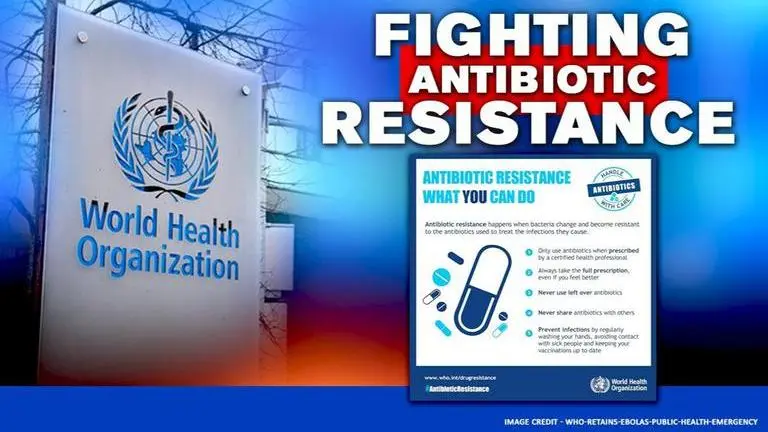Updated 25 June 2020 at 13:33 IST
Amid Covid, WHO warns of bacteria becoming resistant; issues universal anti-prescription
As the world struggles the fight a virus, scientists around the globe have begun to raise their apprehensions against a more dangerous phenomenon
- Lifestyle News
- 2 min read

As the world struggles the fight the Coronavirus, scientists around the globe have begun to raise their apprehensions against another dangerous phenomenon that is slowly developing around the globe. The World Health Organisation in recent times has been suggesting that bacterias which can usually be treated through antibiotics are slowly developing immunity to them.
In relation to this, the WHO has warned people against the unwarranted and unnecessary use of antibiotics, when people suffer from only mild-no symptoms. Research has suggested that the common practice 'popping a pill' when one feels sick should be reduced as this is a big cause for developing an 'immunity' to the drug and only fuels antimicrobial resistance. Along with this, care should be taken to complete the entire course of the antibiotic prescribed by the doctor and not stop when one starts to 'feel better'.
Advertisement
Environmental factors
An antibiotic when taken kills a large majority of the target bacteria at the site of infection. However, it does not kill all the bacteria present in your system, some are naturally resistant. In this case, they develop and mutate and often survive passing through the environment in a number of ways, one of the biggest being the person's faecal matter.
While research earlier showed that antibiotic resistance in bacteria was being fueled through it's manhandling and imprudent use in clinical settings, recent research has suggested that environmental factors may be a big cause of the spread of antibiotic resistance.
In developing countries, such resistance can be developed because of poor water, sanitation, and hygiene practices. It can also transfer between human to animal through the consumption of animal-based products. In such cases, the drug resistance continues to pass down to people through their eating and defecating habits.
Advertisement
It is extremely important in this case to can ensure cleaner water and safer food everywhere, which will help arrest or at least reduce the spread of antibiotic-resistance within and between people and animals.
Published By : Ananya Varma
Published On: 25 June 2020 at 13:33 IST



